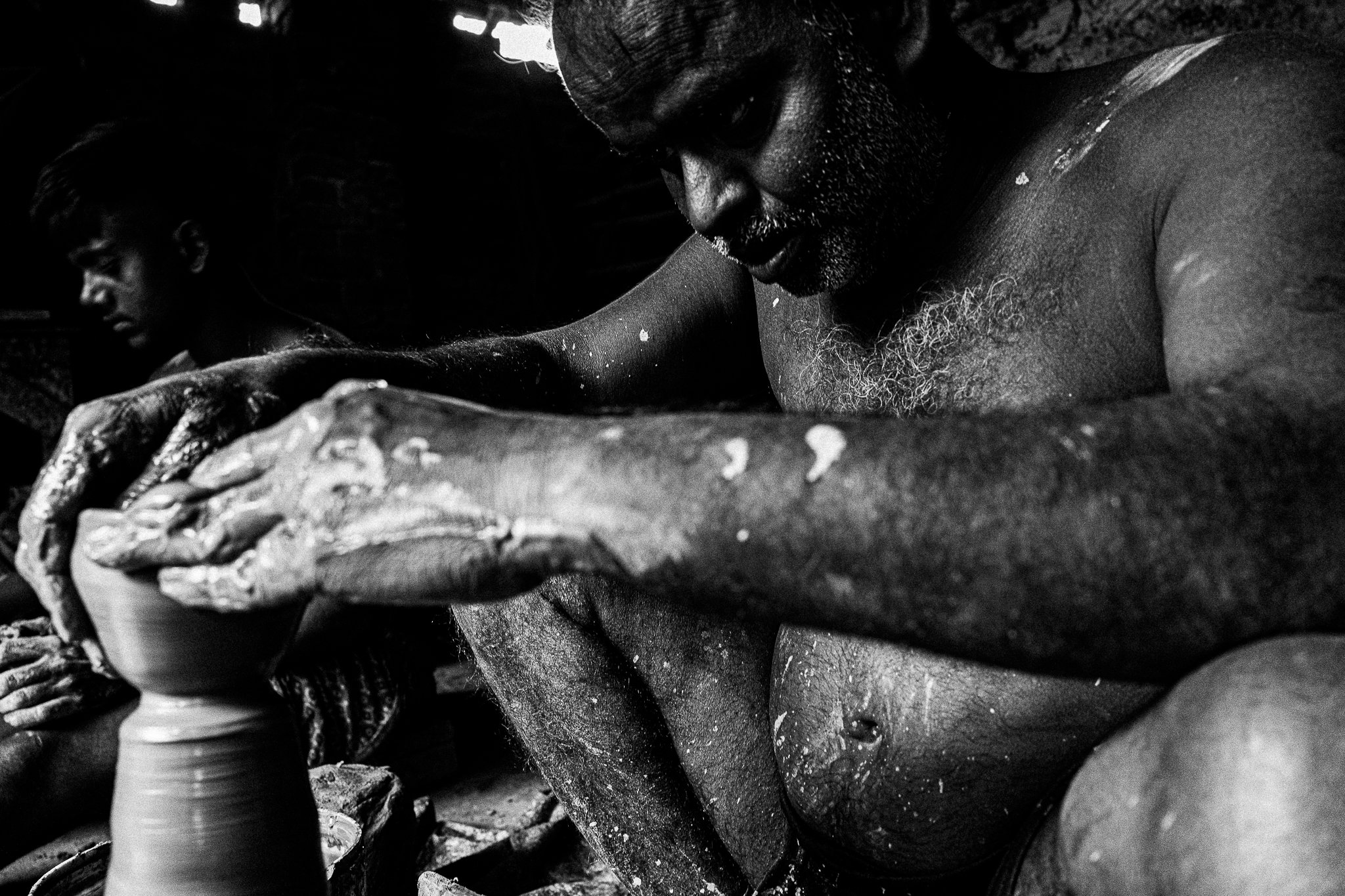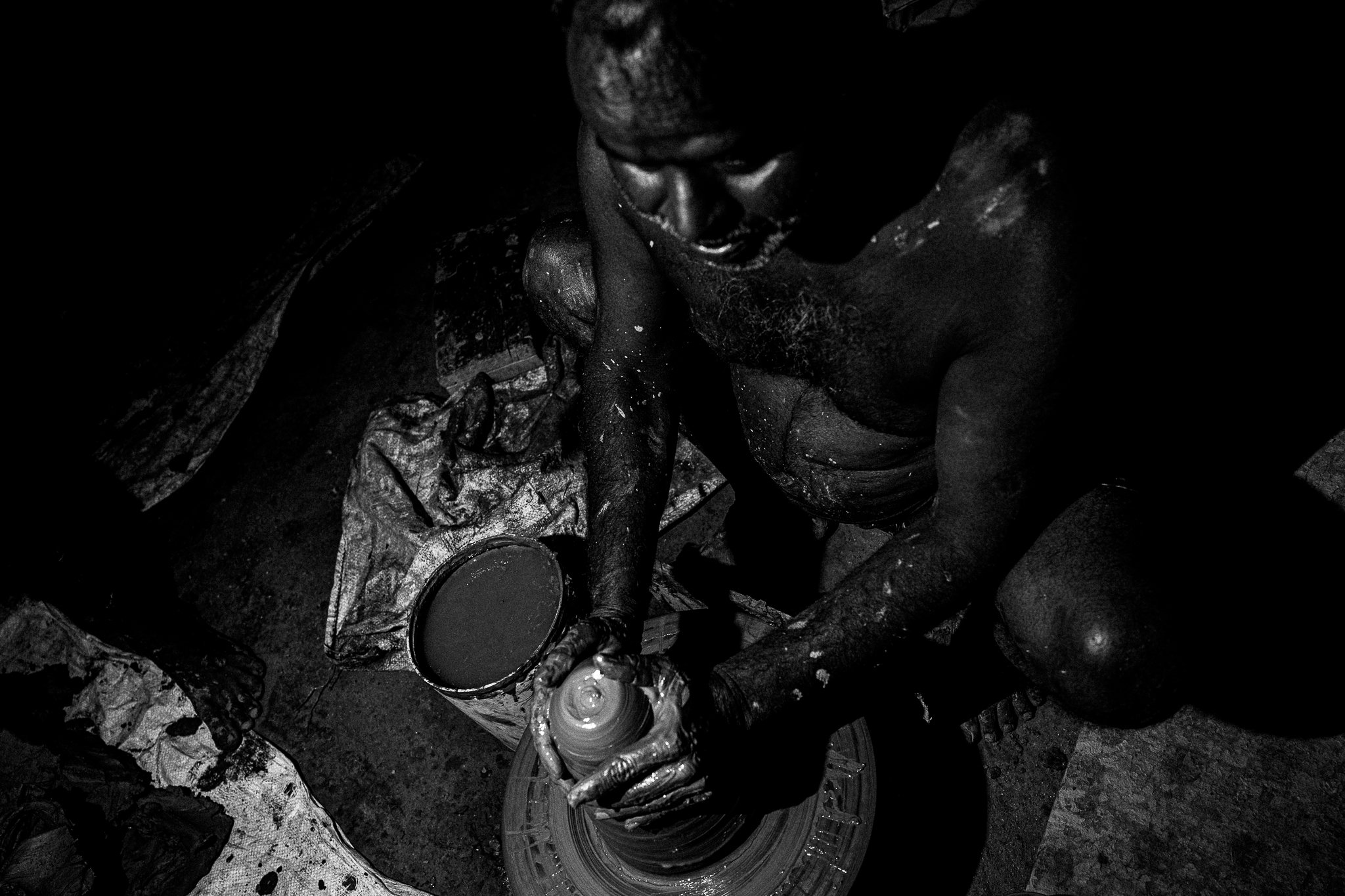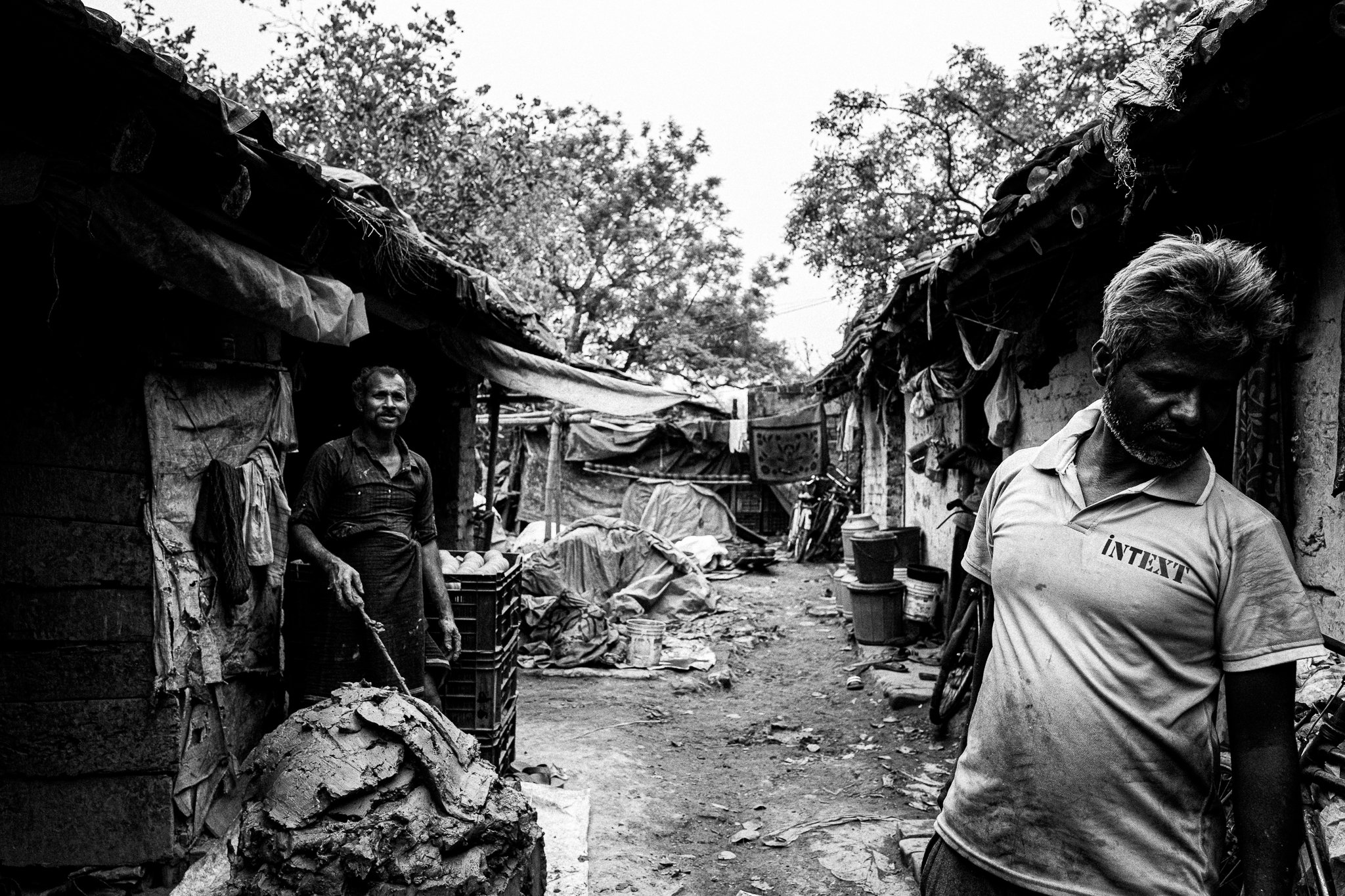The cups
by Shimi Cohen
In the villages encircling Kolkata, I found myself immersed in a world where tradition is etched into the very fabric of existence. Families, bound by a lineage of clay tea cup craftsmanship, poured their hearts and sweat into every delicate creation. Their hands, skilled from years of practice, sculpted the cups with a connection that spanned generations.
Yet, what struck me as profoundly unsettling was the irony that unfolded. Despite the painstaking process, the cups' destiny was fleeting and unceremonious.
Once tea was sold and enjoyed at bustling street stalls, these cups, touched by so much human dedication, met the same fate as disposable ones – discarded without a second thought.
This absurdity gnawed at my conscience, echoing the wider dissonance between tradition and modern convenience. The cups, far from mere vessels, carried the essence of familial continuity and an intricate bond with the land. They symbolized the unbroken thread of heritage that connected past and present.
As I left those villages, the image of families shaping clay tea cups lingered, leaving me haunted by the impermanence of their creations.
The cups may have vanished from sight, but their story lingers as a poignant reminder of the fragile dance between preserving tradition and succumbing to the throwaway culture of today.




